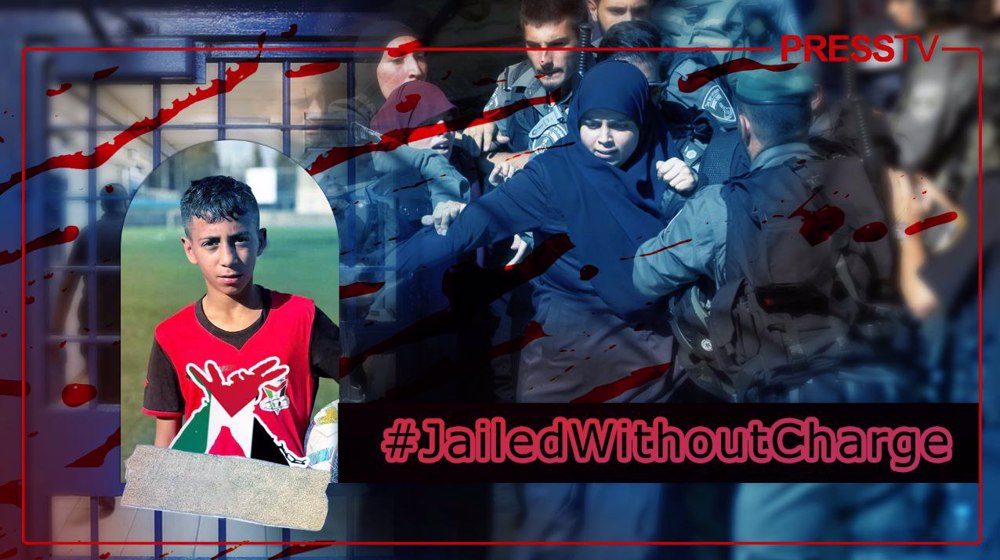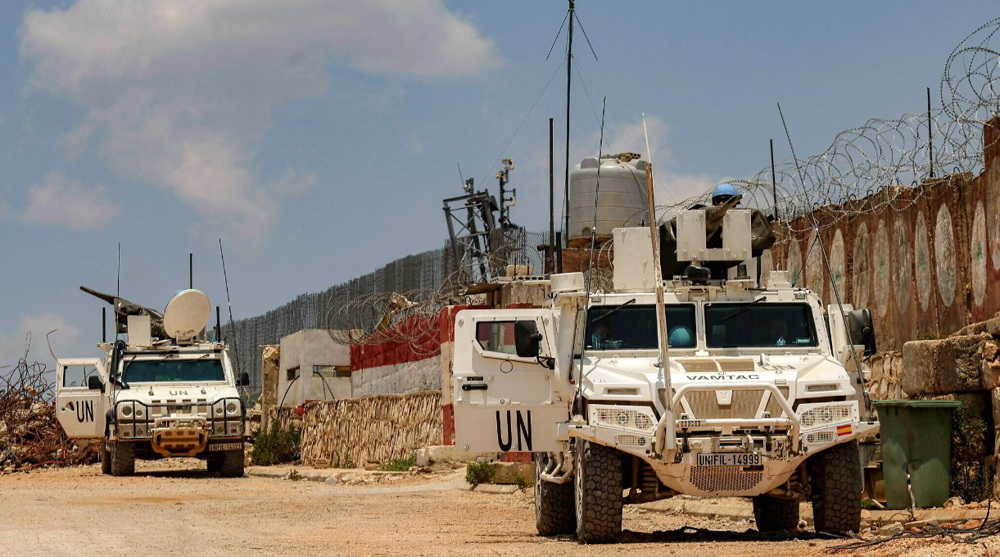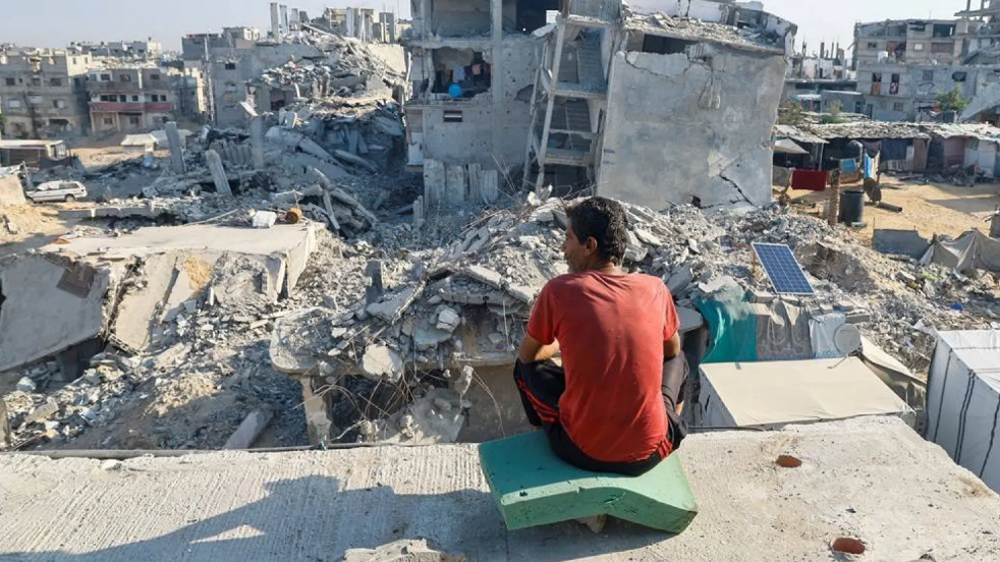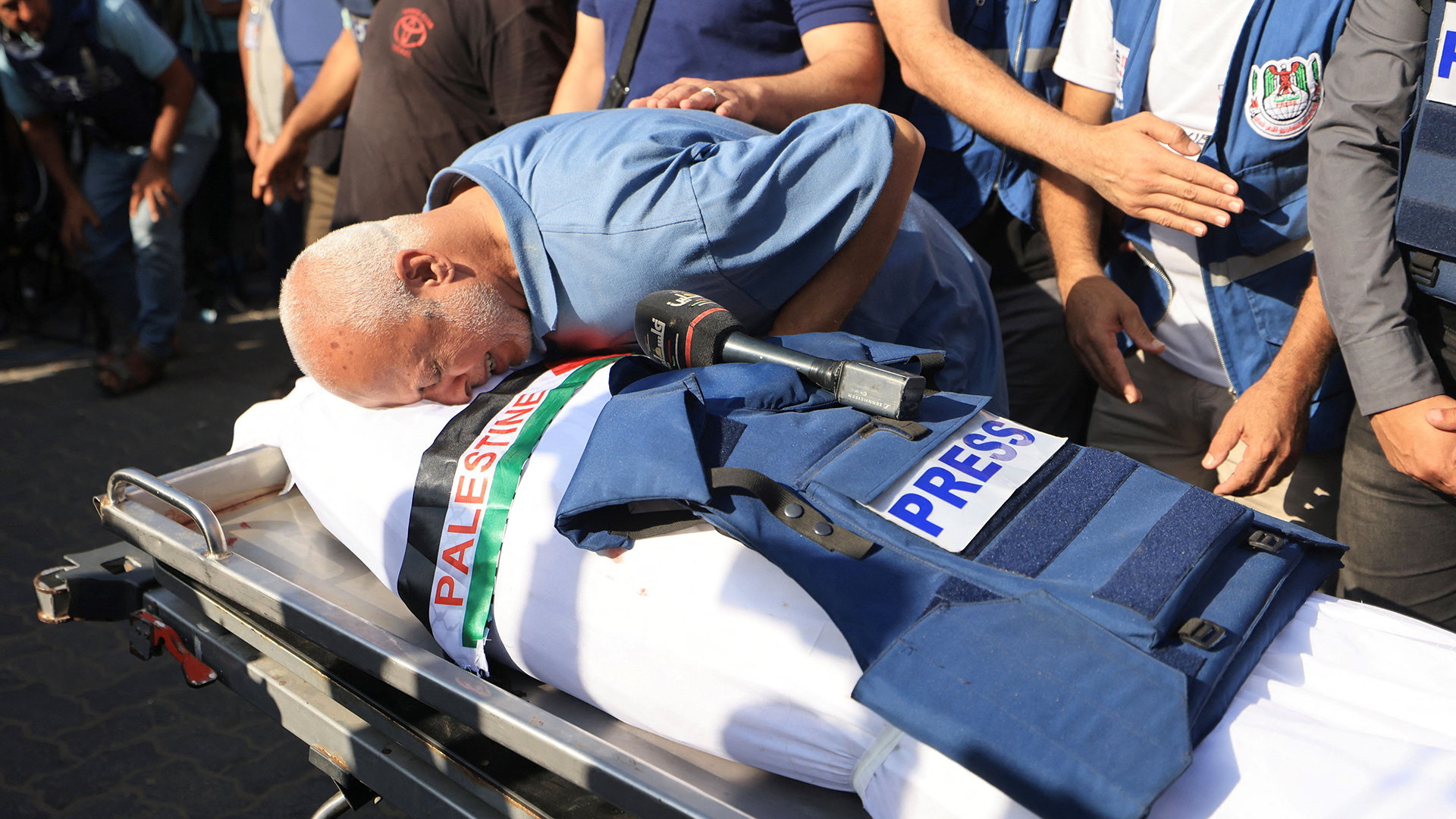14-year-old Palestinian boy Aymah Salaymeh sentenced to 1 year in Israeli prison
By Humaira Ahad
“I don't want to be imprisoned. I want to keep going to school, to play with my friends and cousins. I want to keep playing football. I want to stay on my team. There's beating and torture in prison.”
This is how 14-year-old Aymah Salaymeh reacted to his illegal detention by the Israeli regime.
An Israeli court recently upheld the prison sentence of Salaymeh, who was arrested from his home in the occupied Al Quds (East Jerusalem) on January 19, 2023, by the regime’s police force.
The occupation authorities are forcing the teenager to surrender within 11 days to complete a prison sentence of one year.
Salaymeh has already spent the last 14 months under house arrest which has also affected his schooling.
This judgment against the 14-year-old Palestinian boy comes as the new Zionist regime law allows prison sentences for Palestinian children under 14 years of age.
One year of genocide: The agony of Palestinian prisoners Intensifies
— Press TV 🔻 (@PressTV) October 10, 2024
Press TV's Naqaa Hamed reports from Ramallah pic.twitter.com/IO45DIkxyL
New Israel law and imprisonment of children
According to Adalah, the Legal Center for Arab Minority Rights in Israel, the new law “permits Israeli authorities to sentence minors as young as 12 to imprisonment, including the possibility of a life sentence, if convicted of murder or attempted murder.”
Passed by the Israeli Knesset earlier this month, the law entails a three-year provision allowing courts to incarcerate children directly in prisons instead of juvenile amenities for up to 10 days, which can be extended if they are “deemed dangerous or pose a threat to others.”
“The recent passage of these laws signals a dangerous escalation in Israel’s crackdown on Palestinian rights, framed under the guise of counter-terrorism,” Adalah said in a statement, stressing that the draconian laws enable Israel to punish Palestinians collectively.
As the regime's brutal laws limit the family’s contact with prisoners, Salaymeh’s parents have been worried about their teenage son’s prison sentence.
His father, Nawaf a-Salaymeh, spoke of the difficulties of having a child in prison.
“We will be unable to provide for him as usual and will not be able to know to which prison he has been transferred as no communication is allowed even with juveniles. My son will drastically lose weight, like other prisoners who have lost an average of 30kg during their imprisonment this year,” he noted.
Adalah noted that Palestinian children under 12 in the occupied West Bank are already subjected to such brutal measures. At the same time, the new law will affect Palestinian citizens in other occupied territories especially the residents of East Jerusalem.
Over 750 Palestinian children have been abducted in the occupied West Bank since last year.
“By embedding apartheid-like policies into law, the Knesset further institutionalized systemic oppression, in contravention of both international law and basic human and constitutional rights,” the statement by the rights organization read.
A tale of torture of Ahmad Manasra jailed by Israeli occupation without charges! pic.twitter.com/wAvbVaU1eq
— Press TV 🔻 (@PressTV) January 10, 2024
Imprisonment in 2023
In May 2023, Israeli police entered the Wadi Qadum neighborhood in occupied Al Quds (East Jerusalem) arresting 5 Palestinian boys, Muhammad (15), Ayham (12), Mutaz (14), Mustafa, and Ahmad (13).
The teens were interrogated alone, in the absence of an adult. After refusing to sign a statement in Hebrew, the Israeli interrogators humiliated them, swore at them, and also resorted to physical violence.
For the first two hours, the Palestinian boys were forbidden to go to the bathroom and were even denied water. All this while, the parents of four boys were not allowed into the police station.
Ahmad Salaymeh narrated his ordeal to B’Tselem, which describes itself as the “Israeli Information Center for Human Rights in the Occupied Territories.”
“When we got to the police station at Salah a-Din, I asked to use the bathroom but the police officer refused to take me. I was really scared. I didn't know what was going to happen. The interrogator showed me a video and asked if I was on it,” he was quoted as saying.
“I said I wasn’t, and he shouted at me and asked if those were my friends and brother. I said I didn't know who those people were, and then he hit me on the neck and said that if I admitted to throwing stones, they’d let me go home. I told him again I hadn’t done anything.”
Around midnight, Nawaf al-Salaymeh, the father of Ayham Salaymeh and Ahmad Salaymeh was forced to deposit 1,400 US dollars in bail for each of the five boys. About 10 minutes after Nawaf and his sons got home; an Israeli police officer called and demanded Ahmad’s return to the police station.
The teenager was forced to sign a statement in Hebrew. When asked what he was signing, the interrogator said it was none of his business. Following the incident, the teenager was kept under house arrest.
Israel sentences 14-year-old Palestinian to 4 months in jail
— Press TV 🔻 (@PressTV) September 5, 2024
Naqaa Hamed reports from Ramallah. pic.twitter.com/RddckGaXVt
Forced confession
“The police officer gave me a document in Hebrew to sign, without explaining what it said. I signed it because I was afraid he would hit me again. The whole time, the interrogator was yelling at me and banging his hand on the table,” the Palestinian teenager said.
Ahmad remained under house arrest until July 30.
“The Israeli police told us that they were not satisfied with the child being under house arrest and that he must surrender himself," the teenager's father said.
Ahmad was taken to an Israeli prison and he remained under detention till he was released last December in a swap deal between the Hamas resistance movement and the Israeli regime.
The recent Israeli legislation that can be used against Ahmad permits a temporary five-year measure that allows courts to order the detention of children under 14 in closed facilities if convicted of murder involving “terrorism or terrorist activities.”
Upon reaching 14, the child would continue to serve their sentence in prison.
According to B’Tselem, Israel was holding 226 Palestinian minors in prison at the end of June 2024.
As per the August figures given by the Palestinian Commission for Detainees and Ex-Detainees Affairs, the number of Palestinian detainees in Israeli prisons is estimated at around 9,900.
The prisoners include about 345 women and 690 children.
Press TV’s website can also be accessed at the following alternate addresses:







 This makes it easy to access the Press TV website
This makes it easy to access the Press TV website